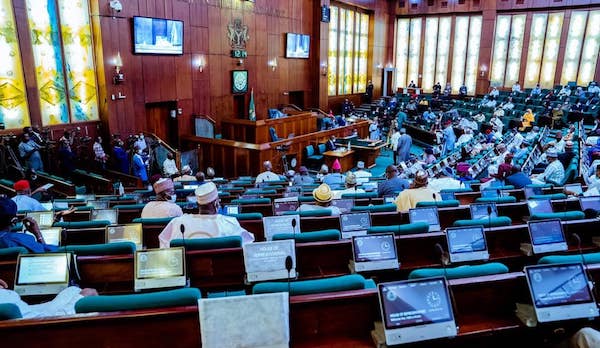Politics
95% of int’l laws, treaties, agreements signed by Nigeria not operational domestically – Lawmaker

The House of Representatives has stated that it will domesticate laws on treaties, protocols, agreements, conventions, pacts, and accords to become operational in the country.
Rep. Nicholas Osai, Chairman, House Committee on Treaties, Protocols, and Agreements, made this disclosure at a public hearing on “Treaties (Making Procedure) Bill 2020 on Tuesday, March 2, in Abuja.
He noted that Nigeria, a State party, had domesticated only about 5 percent of more than 400 international instruments it had signed.
He added that more than 95 percent of the treaties, protocols, agreements, conventions, pacts, and accords had not been operationalised into becoming part of Nigeria’s laws.
“You can therefore imagine us losing out from the benefits derivable from such instruments after many public resources had gone into their negotiation and adoption,’’ he lamented.
Rep, Osai stated that as worrisome as the development was, some of the instruments might have been selectively internalised through Executive fiat.
He said that this was a clear infringement of the nation’s Constitution, adding that a timely intervention was necessary to put the country in good standing in the comity of nations.
According to him, this has necessitated this effort at repealing and re-enacting the Treaties (making procedure Act) to align with the provisions of the 1999 Constitution (as amended).
He said also that the fresh exercise would unify and standardise the country’s laws and further encourage the seamless domestication of international instruments.
In his contribution, Rep Femi Gbajabiamila, Speaker of the House of Representatives, urged the committee to write a new chapter in Nigeria’s history.
This, he said, the committee should do by producing legislation that would establish a new legal framework that met the country’s highest expectations and served her best interests.
READ ALSO: Gbajabiamila promises speedy passage of PIB, others
Gbajabiamila said when the amended Bill became law it would make the country’s laws on treaties and protocols fully compliant with the provisions of the 1999 Constitution.
He said it would also ensure that the country aligned with global best practices.
“Just as importantly, repealing the Treaties (Making Procedure, etc.,) Act of 1993, represents a bold and long overdue step in our forward march towards a perfect democracy.
“This is because the existing law is the product of a military decree, and as such, is an aberration that ought not to still exist 20 years after we returned to democracy in Nigeria,” he said.
In her own remarks, Prof. Jummai Audi, Chairman, Nigerian Law Reforms Commission said the Bill would safeguard the interests of Nigeria and those of other countries who sought to transact business with Nigeria.
She said that the extant law which was in the Exclusive list was restrictive, and urged the lawmakers to move it to the Concurrent list.
Join the conversation
Support Ripples Nigeria, hold up solutions journalism
Balanced, fearless journalism driven by data comes at huge financial costs.
As a media platform, we hold leadership accountable and will not trade the right to press freedom and free speech for a piece of cake.
If you like what we do, and are ready to uphold solutions journalism, kindly donate to the Ripples Nigeria cause.
Your support would help to ensure that citizens and institutions continue to have free access to credible and reliable information for societal development.
























